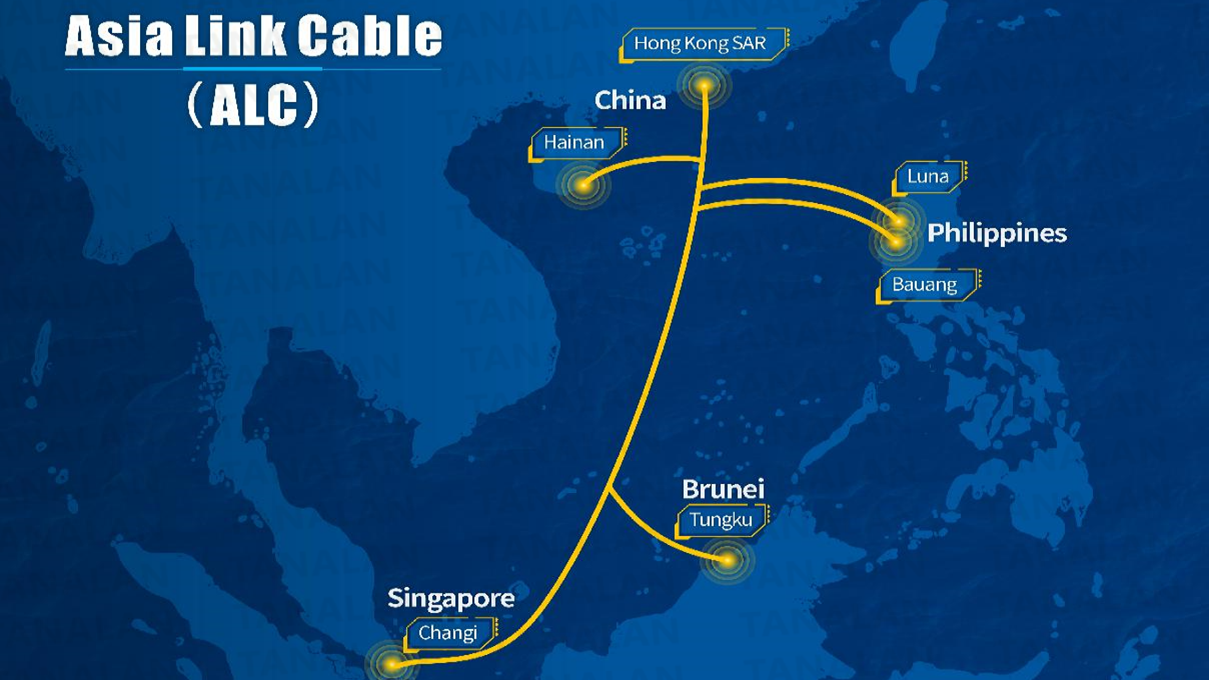Singtel to build $300 million submarine cable system to link Southeast Asian economies
The cable will connect Singapore and Hong Kong SAR with the Philippines, Brunei, and Hainan in China


Singtel and five regional carriers are set to build a $300 million submarine cable network known as the Asia Link Cable System (ALC).
The consortium is co-led by Singtel and China Telecom Global Limited (CTG) and is made up of four other regional carriers: China Telecommunications Corporation (CTC), Globe Telecom, Inc. (Globe) and DITO Telecommunity Corporation (DITO) of the Philippines, and Unified National Networks Sdn Bhd (UNN) of Brunei.
The group will build a 6,000km submarine cable system, expected to be completed by the third quarter of 2025. The system aims to support Southeast Asia’s economic growth by connecting Hong Kong SAR and Singapore, with the Philippines, Brunei and Hainan, China. The companies added that demand for high-bandwidth, low latency, and high redundancy internet connectivity is rising in the region, with its digital economy forecast to reach $363 billion by 2025.
The ALC will contain eight fibre pairs that can transmit up to 18 terabits per second per fibre pair, which the group said is the same as downloading over 2,500 hours of ultra high-definition video per second. It’s also expected to add more capacity and route diversity to existing networks, and bolster resiliency for international internet traffic through Southeast Asia.
"Southeast Asia is one of the world’s fastest growing economies, with rising digital demand from consumers and businesses, accelerated by the pandemic,” said Bill Chang, chief executive officer of Group Enterprise and Regional Data Centre Business at Singtel. “Consumers and Businesses are increasingly relying on services and solutions that require higher-bandwidth and lower-latency connectivity for their work, studies or entertainment."
The ALC will also adopt the open cable system design, which aims to reduce dependency on any single provider consortium partner and ensure timely capacity upgrades can be implemented to meet carriers’ needs.

Singtel underlined that submarine cables are critical information infrastructure, with nearly 100% of all international data traffic that companies consume being transported and routed daily through undersea cables on the ocean floor.
Get the ITPro daily newsletter
Sign up today and you will receive a free copy of our Future Focus 2025 report - the leading guidance on AI, cybersecurity and other IT challenges as per 700+ senior executives
The Singaporean telco also revealed in February 2022 it had invested in a 19,200km submarine cable system connecting Southeast Asia to Europe through the Middle East. The system is expected to be completed in the first quarter of 2025.
The regional telcos aren’t the only companies constructing a submarine cable in the Asia Pacific region. In August 2021, Google revealed it would build an undersea internet cable system to connect Japan, Taiwan, Guam, the Philippines, Indonesia and Singapore, using 7,456 miles of cable. Known as Project Apricot, it also involves Meta which has funded part of the project.
Zach Marzouk is a former ITPro, CloudPro, and ChannelPro staff writer, covering topics like security, privacy, worker rights, and startups, primarily in the Asia Pacific and the US regions. Zach joined ITPro in 2017 where he was introduced to the world of B2B technology as a junior staff writer, before he returned to Argentina in 2018, working in communications and as a copywriter. In 2021, he made his way back to ITPro as a staff writer during the pandemic, before joining the world of freelance in 2022.
-
 Global cybersecurity spending is set to rise 12% in 2025 – here are the industries ramping up investment
Global cybersecurity spending is set to rise 12% in 2025 – here are the industries ramping up investmentNews Global cybersecurity spending is expected to surge this year, fueled by escalating state-sponsored threats and the rise of generative AI, according to new analysis from IDC.
By Ross Kelly Published
-
 Google Cloud is leaning on all its strengths to support enterprise AI
Google Cloud is leaning on all its strengths to support enterprise AIAnalysis Google Cloud made a big statement at its annual conference last week, staking its claim as the go-to provider for enterprise AI adoption.
By Rory Bathgate Published
-
 Better together
Better togetherWhitepaper Achieve more with Windows 11 and Surface
By ITPro Published
-
 Transforming the enterprise
Transforming the enterpriseWhitepaper With Intel and CDW
By ITPro Published
-
 The top trends in money remittance
The top trends in money remittanceWhitepaper Tackling the key issues shaping the money remittance industry
By ITPro Published
-
 How Kantar revamped its IT infrastructure after being sold off
How Kantar revamped its IT infrastructure after being sold offCase Study Being acquired by a private equity firm meant Kantar couldn’t rely on its parent company’s infrastructure, and was forced to confront its technical shortcomings
By Rene Millman Published
-
 Deutsche Bank wraps up Postbank IT integration after bug-laden migrations
Deutsche Bank wraps up Postbank IT integration after bug-laden migrationsNews The IT merger is expected to generate annual savings of €300 million by 2025
By Daniel Todd Published
-
 Analyzing the economic benefits of Dell Technologies with VMware Tanzu & Intel
Analyzing the economic benefits of Dell Technologies with VMware Tanzu & IntelWhitepaper ESG economic validation
By ITPro Published
-
 Defra needs £726 million to modernize pervasive legacy IT issues
Defra needs £726 million to modernize pervasive legacy IT issuesNews A significant portion of IT systems are reportedly still in extended support or are fully unsupported
By Ross Kelly Published
-
 Boomi snaps up former MuleSoft executive as APJ channel lead
Boomi snaps up former MuleSoft executive as APJ channel leadNews Global software veteran Jim Fisher will work to expand the company’s channel operations across the region
By Daniel Todd Published